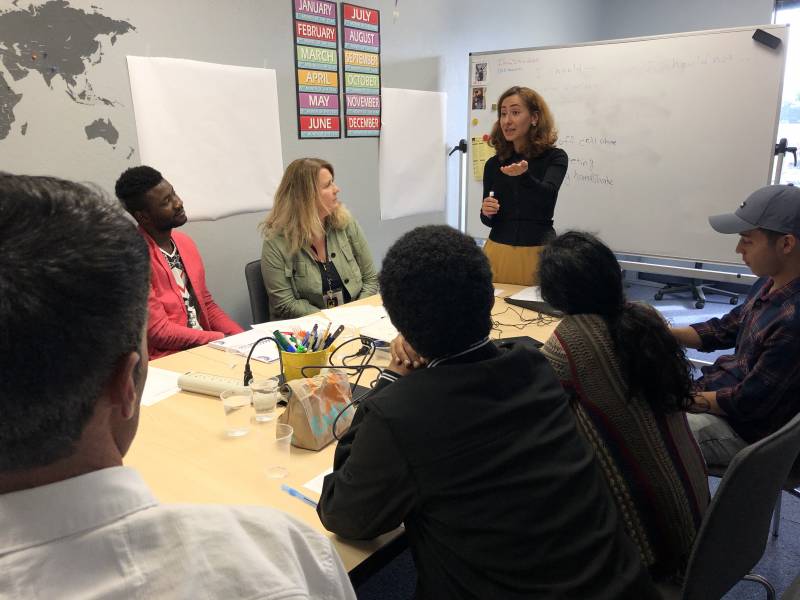But that funding dried up under the Trump administration, as the number of refugees admitted plummeted from 85,000 in 2016 to less than 12,000 last year nationwide, effectively strangling local refugee resettlement operations.
Nonprofit agencies laid off case managers, interpreters and other staffers. The IRC shut down its San Jose resettlement operations completely after the number of new refugee arrivals there dropped from 94 in 2016 to just over a dozen in 2019, said Terlouw. Across Northern California, the organization, which also has offices in Oakland, Sacramento, Turlock and Modesto, assisted just 40 refugee families so far this year, down from 900 refugees in 2016.
Terlouw said trying to raise funds and rebuild resettlement operations, sometimes from scratch as in San Jose, is a huge challenge in itself. But the lack of certainty as to how many more refugees the federal government plans to admit and from what countries makes taking those steps even more difficult.
“We have to hire staff, we have to train them,” said Terlouw. “If we’re going to receive refugees, we also need to have housing options planned in advance, we need to talk to school districts.”
And in order to hire interpreters, Terlouw added, she needs to know whether she’ll need staff who speak the languages of Eritrea or other countries, such as in the former Soviet Union.
Meanwhile, about 30,000 refugees abroad have been cleared by the U.S. government to come to this country, but they remain stranded until Biden lifts the ceiling on admissions, according to IRC.
Biden’s postponement forced the State Department to cancel flights it had booked for more than 700 refugees, the New York Times reported.
Refugees must go through an exhaustive vetting process that can take years before they are approved for entry to the U.S. Many await that determination in difficult and often dangerous conditions, said Fouzia Azizi, who leads the resettlement program at Jewish Family and Community Services East Bay, and is a former refugee herself.
“I lived that life. I have been in their shoes and I know how hard it is,” said Azizi, who fled sectarian violence in her native Afghanistan when she was 17 years old, and applied for refugee status from Pakistan. “I know how frustrating and terrifying it is to not be able to sleep because you are just worried about your family. You’re worried about ‘Am I going to make it?’ ”
Azizi had big hopes for Biden, who promised in his campaign to admit up to 125,000 refugees next year, and she is frustrated that the administration has moved slower than expected.
“It’s extremely disappointing,” said Azizi, now 46. “He is talking about the moral responsibility of Americans for refugee programs, but unfortunately has failed to back his words with action.
Her organization has resettled only one refugee from Australia since December and has had to let go most of its case managers for resettlement services, she said.
In his April 16 directive to the Secretary of State, Biden said Trump’s admission limit of 15,000 refugees remained “justified,” which dismayed refugee advocates and some members of Congress. The cap is the lowest since former President Jimmy Carter signed the 1980 Refugee Act, which then-Sen. Biden had co-sponsored.

